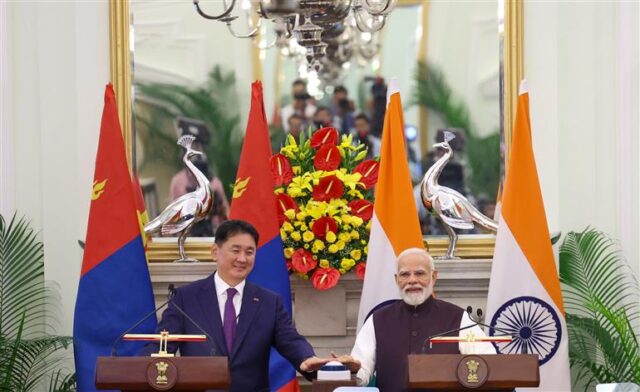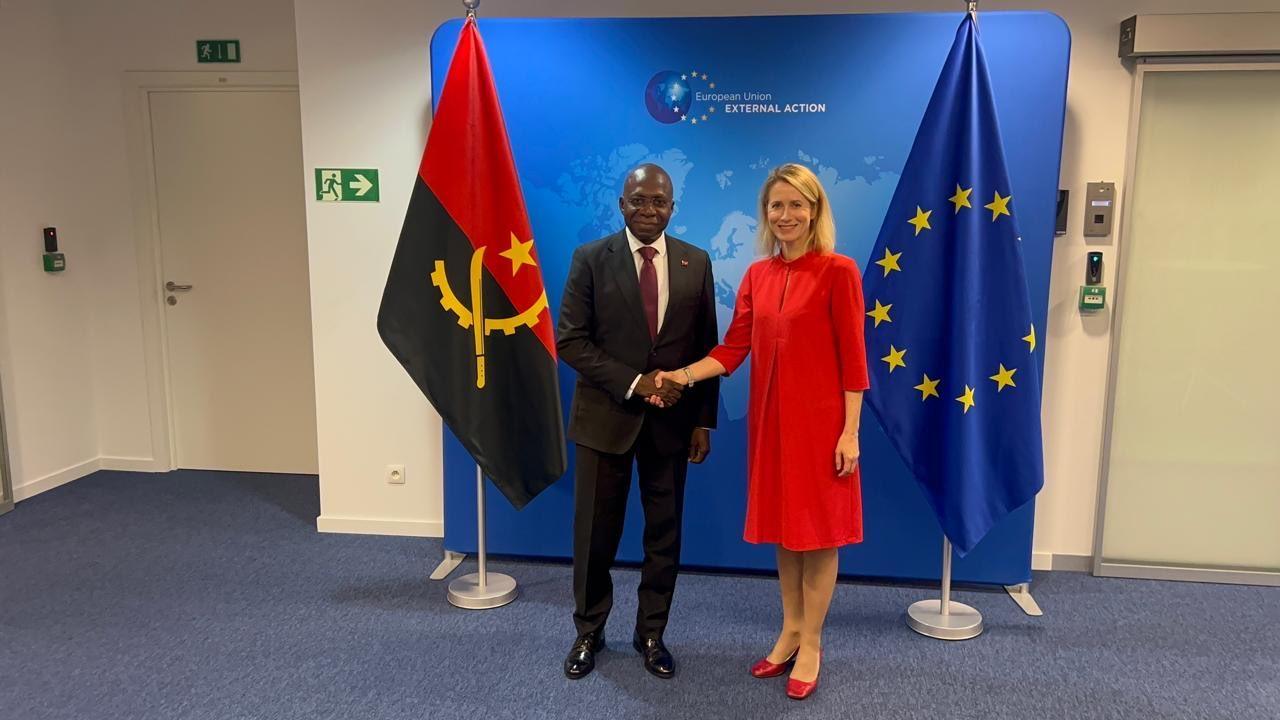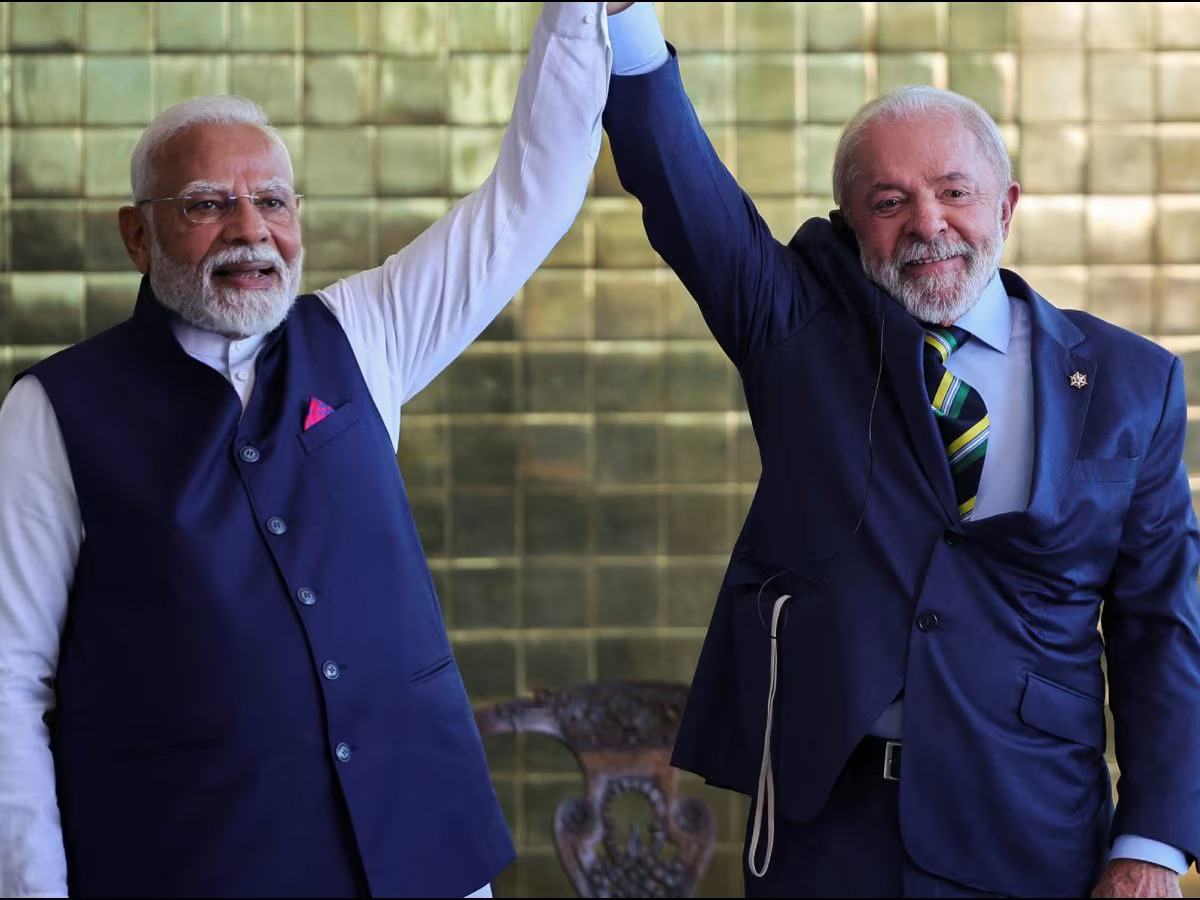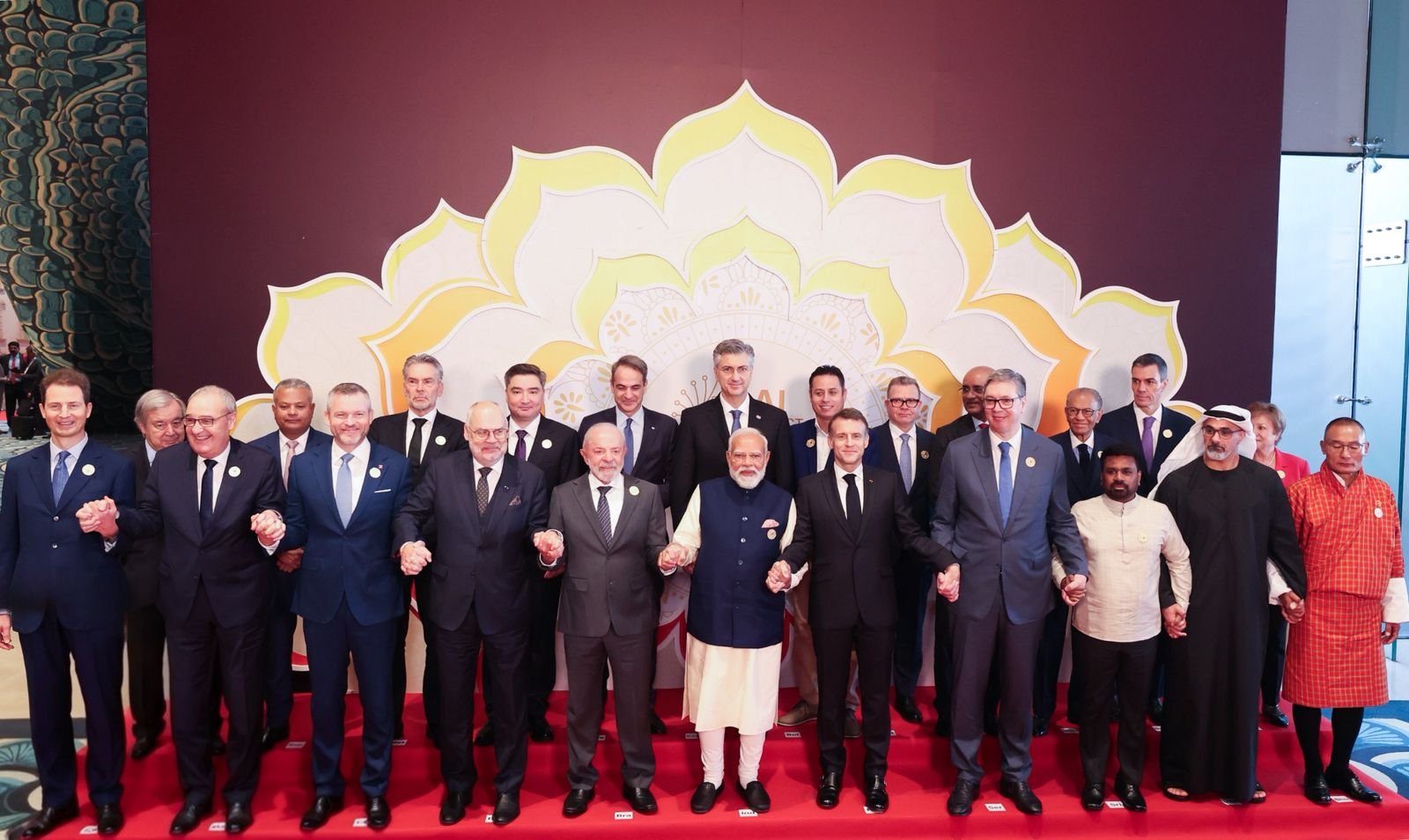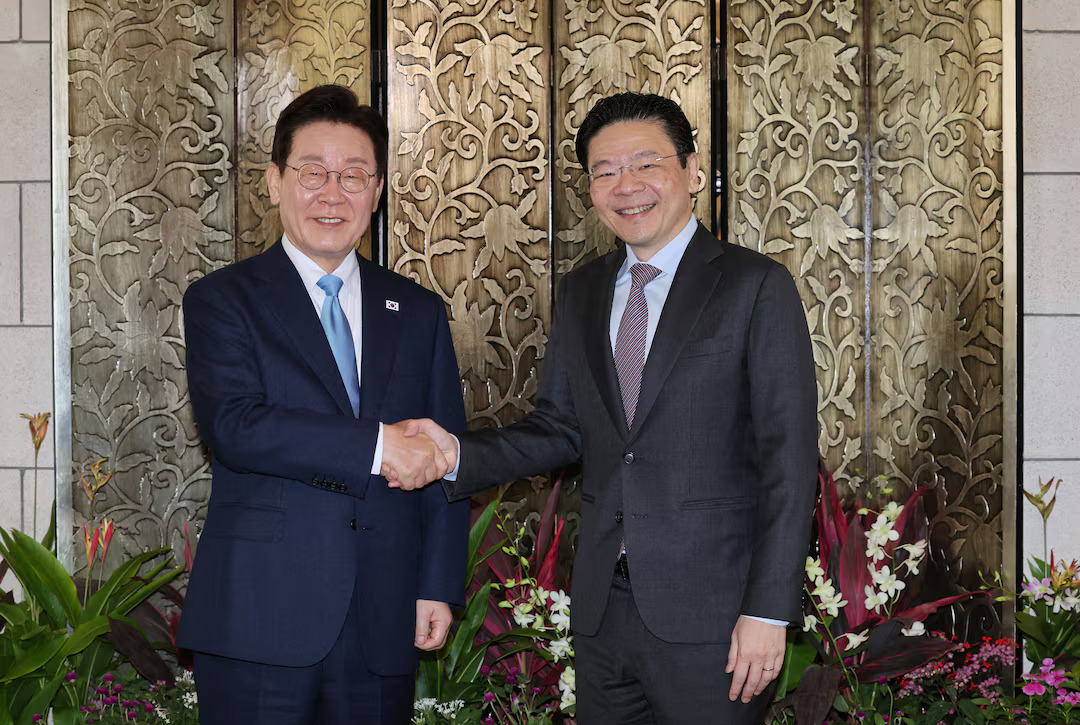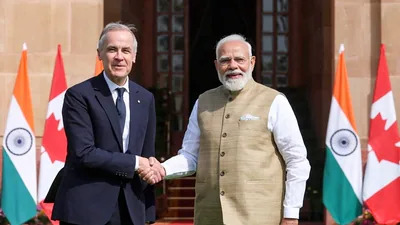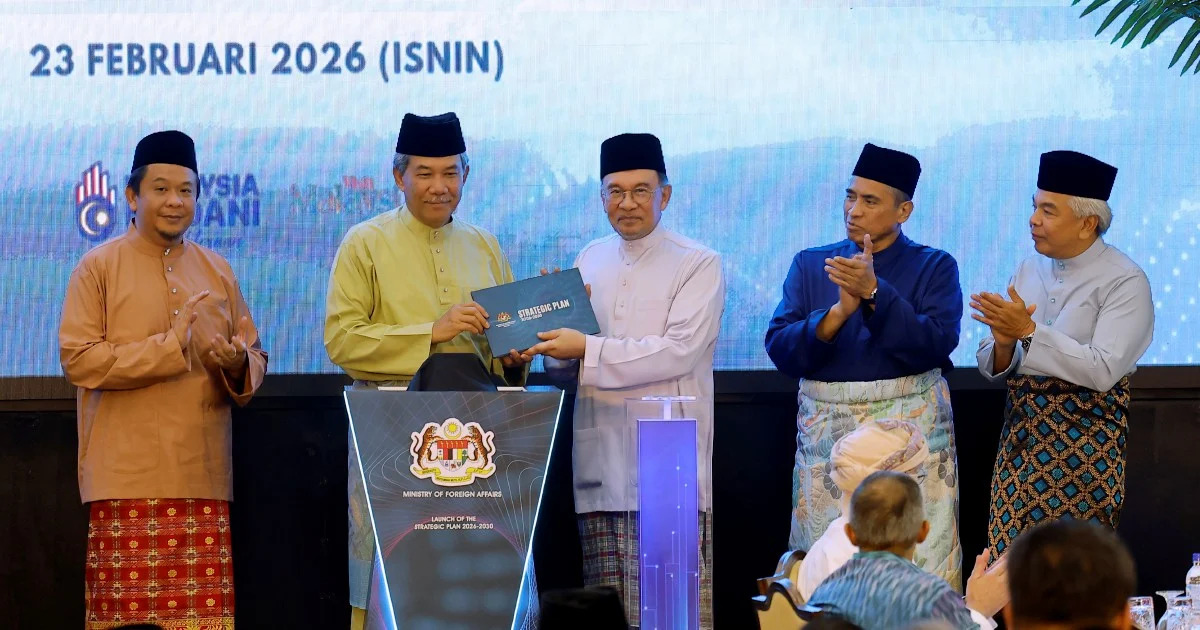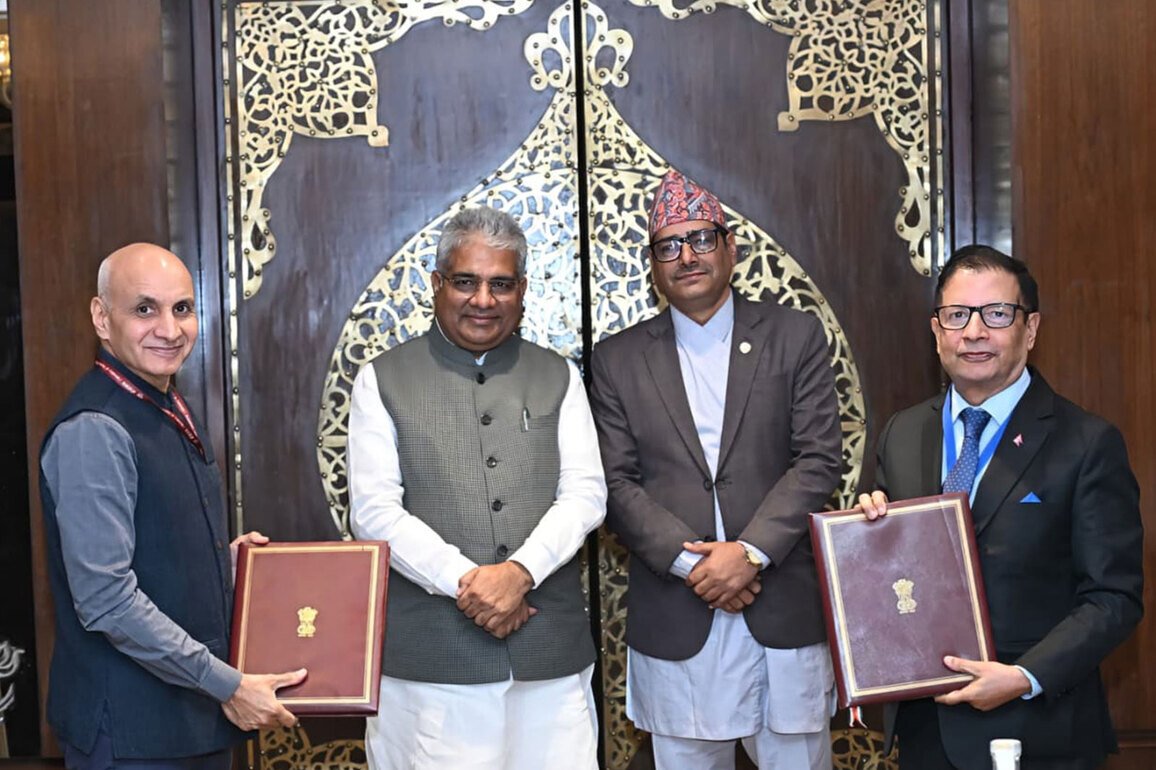In a significant boost to bilateral relations, India and Mongolia on 15th October 2025, inked ten agreements spanning diverse sectors, following extensive talks between Prime Minister Narendra Modi and Mongolian President Khurelsukh Ukhnaa in New Delhi. The discussions, marked by warmth and symbolism, underscored the deep historical and spiritual connections between the two nations while laying out a roadmap for enhanced strategic, economic, and cultural collaboration.
At the heart of the dialogue was India’s interest in procuring uranium and other key minerals from Mongolia, alongside discussions to strengthen defence and security cooperation. The talks also highlighted the $1.7 billion Indian-supported oil refinery project in Mongolia — the country’s first — which both sides hailed as a cornerstone of their expanding energy partnership. Speaking at a joint press conference, Prime Minister Modi affirmed that India would continue to be a “dependable and steadfast partner” in Mongolia’s developmental journey. He announced that free electronic visas would be extended to Mongolian citizens and unveiled plans for an annual exchange of young cultural ambassadors, aimed at deepening people-to-people ties.
“The oil refinery project, supported by India’s line of credit, will enhance Mongolia’s energy security and reduce its dependence on imports from neighbouring countries,” Modi said. “It is India’s largest development partnership initiative abroad, involving more than 2,500 Indian experts working with Mongolian counterparts.”
Expanding Cooperation Across Key Sectors
The two leaders witnessed the signing of ten Memoranda of Understanding (MoUs) covering areas such as humanitarian aid, immigration, mineral resource exploration, digital technologies, cooperative promotion, and heritage restoration. The agreements also aim to strengthen collaboration in geology, renewable energy, education, and cultural preservation. Marking 70 years of diplomatic relations, Modi and Khurelsukh jointly released commemorative stamps celebrating the enduring friendship between the two democracies. Prime Minister Modi emphasised the “spiritual and soulful” bond linking India and Mongolia, citing Buddhism’s enduring influence in both nations. He announced new initiatives connecting Nalanda University with Mongolia’s Gandan Monastery, reflecting the shared Buddhist heritage.
“Our relationship goes beyond diplomacy,” Modi said. “It is rooted in faith, history, and mutual respect. We aim to bring new energy to this ancient connection.”
Energy, Trade, and Connectivity
The centrepiece of India–Mongolia cooperation remains the petroleum refinery project near Sainshand in southern Mongolia. Financed through India’s $1.7 billion line of credit, the refinery is expected to begin operations by 2028, four years behind its original schedule. Once completed, it will process Mongolia’s own crude oil, significantly reducing its reliance on imports from Russia and China. During a media briefing, P. Kumaran, Secretary (East) in India’s Ministry of External Affairs, said the project demonstrates India’s commitment to building resilient supply chains and fostering collaboration on critical minerals. He described President Khurelsukh’s visit as having yielded “both symbolic and practical outcomes” that reinforced the “deep-rooted friendship” between the two countries. The Mongolian President, expressing gratitude to India for its “all-round support”, lauded the progress made in the refinery project and hailed the digital cooperation MoU as a “landmark step” in the bilateral partnership. He revealed that a Mongolian airline intends to begin charter flights to Amritsar and New Delhi later this year, which is expected to enhance connectivity, trade, and tourism.
Shared Global Vision
Beyond bilateral initiatives, the two nations reaffirmed their shared commitment to a free, open, inclusive, and rules-based Indo-Pacific. Modi noted that both countries stand together in international forums and continue to amplify the voice of the Global South, advocating for equitable development and sustainable growth. Khurelsukh also praised India’s leadership in the renewable energy sector, particularly the International Solar Alliance, which New Delhi co-founded to promote global cooperation in clean energy.
A Visit of Symbolism and Substance
President Khurelsukh, on his first state visit to India as President, arrived in New Delhi on Wednesday for a four-day official trip. His delegation includes cabinet ministers, parliamentarians, senior officials, business representatives, and cultural figures. Earlier in the day, he paid homage to Mahatma Gandhi at Rajghat and later met President Droupadi Murmu, who hosted a state banquet in his honour. The visit, observers say, has reaffirmed the strategic depth of India–Mongolia relations, which now encompass defence, security, energy, mining, IT, healthcare, and education. As both nations look to the future, their cooperation — built on shared values and a thousand years of cultural exchange — appears poised to enter a new and dynamic phase.

